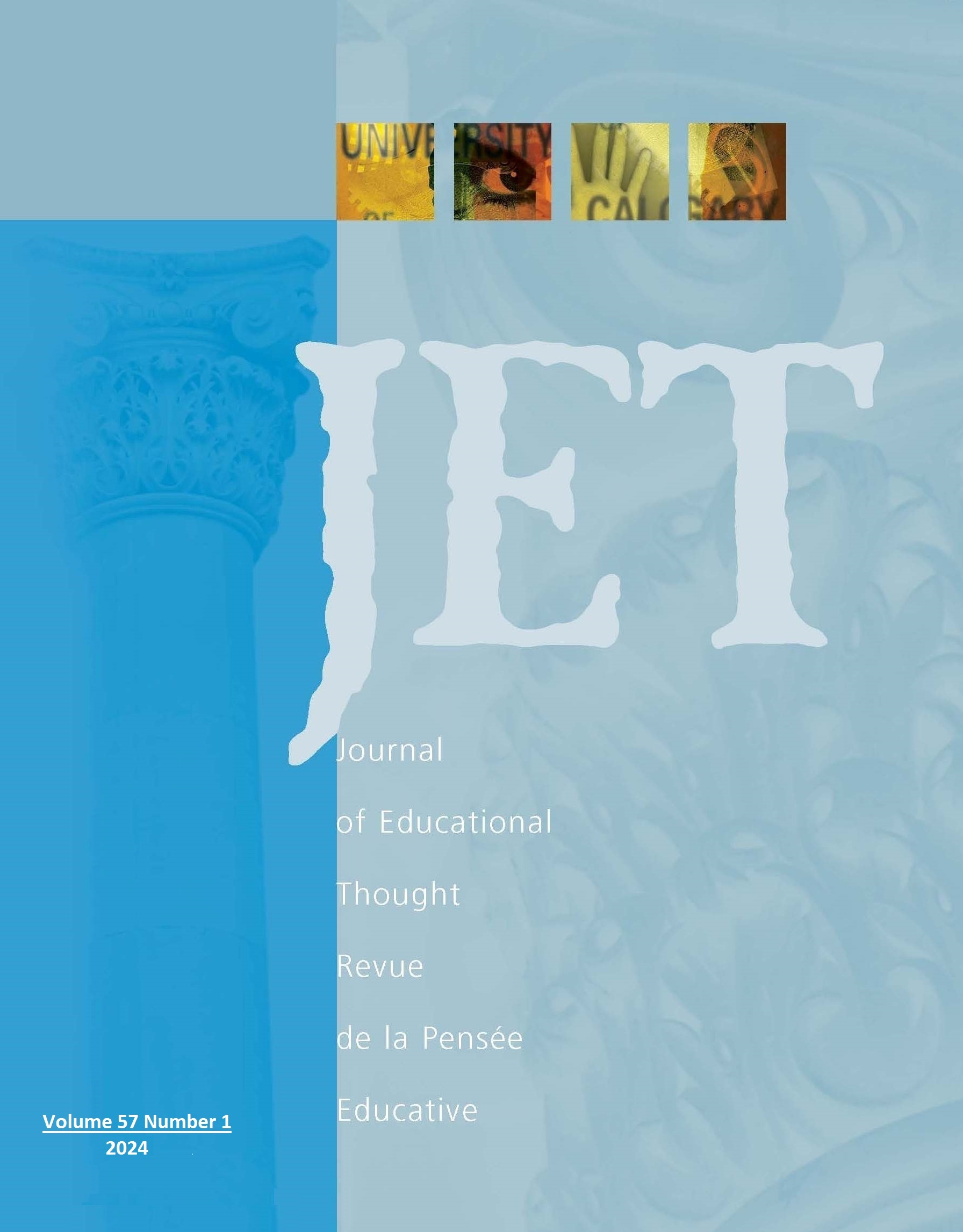The Mandorla Model: Toward Collaboration as Liberatory Pedagogy
DOI:
https://doi.org/10.55016/ojs/jet.v57i1.79414Abstract
Abstract: This paper responds to graduate student experience of the collaborative pedagogy (Moran & John-Steiner, 2004; Marta-Lazo et al., 2019) approach Drew employed in a music production course for educators in spring 2023. We here offer the Mandorla Model: an innovative conceptualization of the educational process that creates equal opportunities for students. It validates, affirms, supports, and sustains student narratives and funds of knowledge (Moll et al., 1992; González et al., 2006). We begin in this paper by introducing the Mandorla Model and its elements. We then reflect upon the course from which it was derived. Finally, we offer seven ways in which the Mandorla Model dismantles oppressive educational structures towards a liberatory pedagogy. By fostering an environment of equality, autonomy, and curiosity, the Mandorla Model serves as an alternative to dominant pedagogies.
Downloads
Downloads
Published
Issue
Section
License
The Journal of Educational Thought retains first publication rights for all articles. The Journal grants reproduction rights for noncommercial educational purposes with the provision that full acknowledgement of the work’s source be noted on each copy. The Journal will redirect to the appropriate authors any inquiries for further commercial publication of individual articles. All authors wishing to publish in JET will be asked to fill in and sign a Consent to Publish and Transfer of Copyright agreement.
Authors must affirm that any submission to JET has not been and will not be published or submitted elsewhere while under considration by JET.

